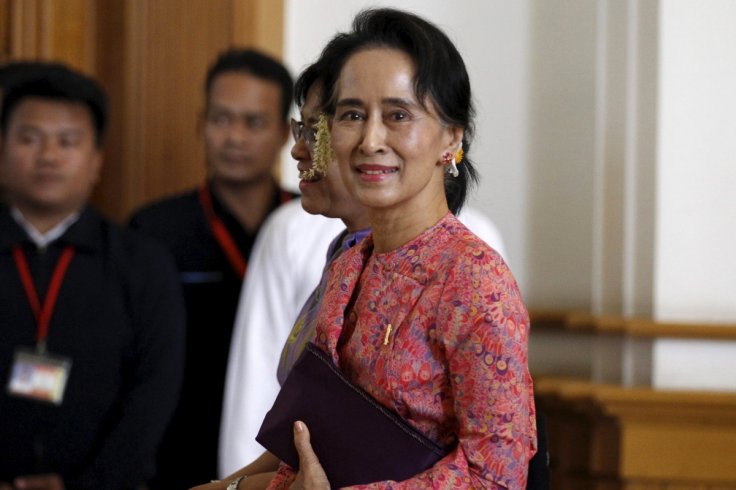Burmese politician Aung San Suu Kyi is going to lead the legal team for the case filed against Myanmar over the crackdown on the Rohingya population two years ago. The counter-insurgency attack led to the displacement of the Muslim population to different countries which ensued much of the debate on the refugee crisis that was faced by Myanmar's neighbouring countries.
Myanmar government announced Suu Kyi will lead the team of lawyers

The Myanmar government announced that Suu Kyi would be heading the team of lawyers over a Facebook post on the page of the office of the state counsellor an office Suu Kyi holds, along with that of the Foreign Minister.
The case was filed on the grounds of genocide by Gambia in the International Criminal Court in the Netherlands. The court said that the public hearings would be held in December. The country has filed the case on behalf of the Organisation of Islamic Cooperation.
Myanmar's government has strongly opposed the idea that the country had carried out the genocide. Gambia's Attorney General and Justice Minister Abubacarr Marie Tambadou said to Associated Press that action should be taken against any genocide happening across the world and the international community at this time should play an active role in reducing such terrible atrocities.
Rohingya population in Myanmar has been denied citizenship
With the military being accused of various heinous crimes against the Muslim population during the 2017 crisis, and the growing discomfort from the neighbouring countries, the case would lead to one of the key turning points for the Muslim population in the Buddhist majority country.
On a report submitted by the UN on a fact-finding mission on Myanmar noted that there were chances of the incident being repeated. The report further elaborated on the need to hold Myanmar responsible for the genocide.
Myanmar has rejected the Court's decision to open the investigation. They believed that the Court holds no jurisdiction because the country was not a party to the agreement for establishing the Court. The Court argues that the jurisdiction comes from the various facets involved with the refugee crisis and human rights issues. The Rohingya population in Myanmar has been denied citizenship and treated unjustly over the years.








